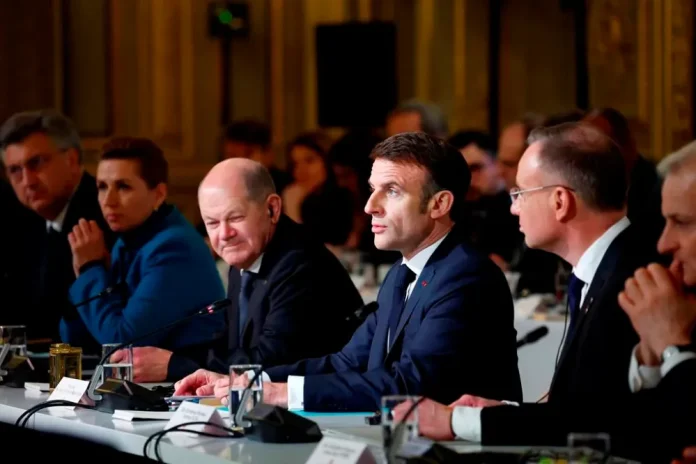While the French President touches on the topic of sending Western troops to Ukraine and European leaders reject the idea, the Russian presidential spokesman warns of the possible consequences of such actions.
French President Emmanuel Macron invited his European counterparts to the Elysee Palace for a hastily organised meeting to discuss how to increase ammunition deliveries to Ukraine. Macron argued that sending Western ground troops to Ukraine “cannot be ruled out” as European allies announced new measures to deliver ammunition and support to Kyiv.
Meanwhile, Slovak Prime Minister Robert Fico stated that some NATO and EU members were indeed considering sending soldiers to Ukraine on a bilateral basis. However, Dutch Prime Minister Mark Rutte, the possible next NATO secretary general, claimed that sending troops to Ukraine was not at the centre of the Paris talks. Czech Prime Minister Petr Fiala also stressed that there was no question of sending Czech troops to Ukraine.
The meeting was joined by German Chancellor Olaf Scholz, British Foreign Secretary David Cameron, representatives of Scandinavian and Balkan countries and the US.
US Assistant Secretary of State for European and Eurasian Affairs Jim O’Brien stated that the United States had no plans to send troops to Ukraine, nor did it plan to send NATO troops to fight there.
Russian President Vladimir Putin’s spokesman, Dmitry Peskov, noted that the main elements of the French leader’s speech had been heard in previous speeches in some way or another, whereas the statement about sending Western military forces was a new part that should be taken into account.
Peskov also commented on the possibility of a direct conflict between Russia and NATO if Western troops are sent to Ukraine. He stated that NATO countries should also assess the possible consequences of such actions and realise that it is “absolutely not in the interests of these countries.”
In this case, we need to talk not about probability, but about inevitability, and that’s how we evaluate it.
